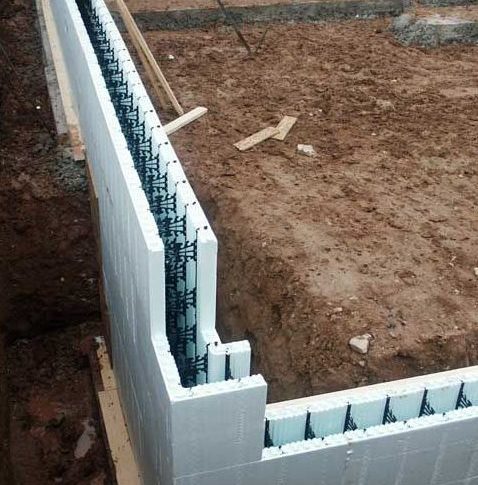In today’s homebuilding landscape, energy efficiency is no longer a luxury it is a necessity. Homeowners are increasingly aware of the impact their homes have on both their monthly bills and the environment. One of the most significant advancements in energy efficient construction is the use of Insulated Concrete Form, or ICF, walls. These innovative walls combine strength, insulation, and sustainability, making them a game changer for modern homes.
What Are Insulated Concrete Form Walls
Insulated Concrete Form walls are created by stacking interlocking forms, typically made of expanded polystyrene foam, which are then filled with reinforced concrete. This construction method results in walls that are both strong and highly insulated. Unlike traditional wood frame construction, ICF walls provide a continuous barrier against temperature fluctuations, drastically reducing heat loss in the winter and heat gain in the summer.
The design of ICF walls is inherently energy efficient. The foam layers on either side of the concrete core act as insulation, while the concrete itself provides thermal mass. This combination ensures that homes built with ICF walls maintain a more consistent indoor temperature, reducing the need for excessive heating and cooling. The result is a home that is not only more comfortable year round but also significantly more cost effective to operate.
Superior Insulation and Air Sealing
One of the key benefits of ICF walls is their superior insulation value. Traditional wood frame walls often rely on fiberglass insulation, which can shift or degrade over time, creating gaps that allow air to escape. ICF walls, on the other hand, create a continuous layer of insulation that surrounds the concrete core, effectively eliminating thermal bridging and air leaks.
This air tight construction is critical for energy efficiency. Air leakage in a home can account for a significant portion of energy loss, forcing heating and cooling systems to work harder. By minimizing these leaks, ICF walls help homeowners save on utility bills while maintaining a consistent and comfortable indoor environment. For coastal areas, where humidity and wind are constant challenges, this tight envelope also prevents unwanted moisture intrusion, further protecting the home’s structure.
Reduced Energy Costs
The combination of insulation and thermal mass in ICF walls translates directly to lower energy costs. Homes built with ICF walls require less energy to heat and cool, resulting in noticeable savings on monthly utility bills. According to industry studies, ICF homes can reduce heating and cooling costs by up to 50 percent compared to traditional construction. Over the life of a home, these savings can be substantial, making ICF walls a smart investment for both energy efficiency and long term financial benefits.
Increased Comfort and Noise Reduction
Energy efficiency is not the only advantage of ICF walls. The same properties that make these walls effective at regulating temperature also enhance indoor comfort in other ways. ICF walls provide excellent soundproofing, reducing noise from outside traffic, storms, or neighbors. For families living in busy or coastal areas, this means a quieter and more peaceful home environment.
Additionally, the consistent indoor temperature provided by ICF walls eliminates hot or cold spots within a home. Unlike traditional walls, which can allow drafts or uneven heating, ICF walls create a uniform climate, increasing overall comfort for occupants.
Durability and Sustainability
Beyond energy efficiency, ICF walls offer unmatched durability. The concrete core makes the walls resistant to fire, rot, mold, and pests, while the insulating foam provides long term performance without degrading. This longevity means fewer repairs and replacements over the life of the home, further contributing to energy and cost savings.
From an environmental perspective, ICF walls are also sustainable. Reduced energy consumption lowers a home’s carbon footprint, while the durability and minimal maintenance reduce waste over time. Many ICF manufacturers also use recycled materials in their foam products, making them an eco friendly choice for builders and homeowners alike.
Adaptability for Modern Home Design
ICF walls are not just practical they are versatile. They can be used in a wide variety of home styles and designs, from traditional to contemporary. Builders can create curved walls, large open spaces, and even multi story structures with ease. The energy efficiency of ICF walls enhances every design, allowing homeowners to enjoy both style and performance in their custom built homes.
Why ICF Is Ideal for Coastal and Extreme Climates
For homeowners in coastal regions or areas prone to extreme weather, ICF walls provide added peace of mind. The combination of strength, insulation, and air tight construction makes these homes more resilient to high winds, hurricanes, and temperature extremes. This resilience not only protects the family and property but also ensures that the home remains energy efficient even under challenging conditions.
Conclusion
Insulated Concrete Form walls are transforming the way homes are built by prioritizing energy efficiency without sacrificing durability or design flexibility. Their unique combination of insulation, thermal mass, and airtight construction provides homeowners with lower energy costs, increased comfort, noise reduction, and long term sustainability.
For anyone looking to build a modern, energy efficient home that stands the test of time, ICF walls are more than just a construction option they are a game changer. Choosing ICF technology means investing in a home that is comfortable, cost effective, and resilient, making it a smart choice for today’s environmentally conscious and financially savvy homeowners.





